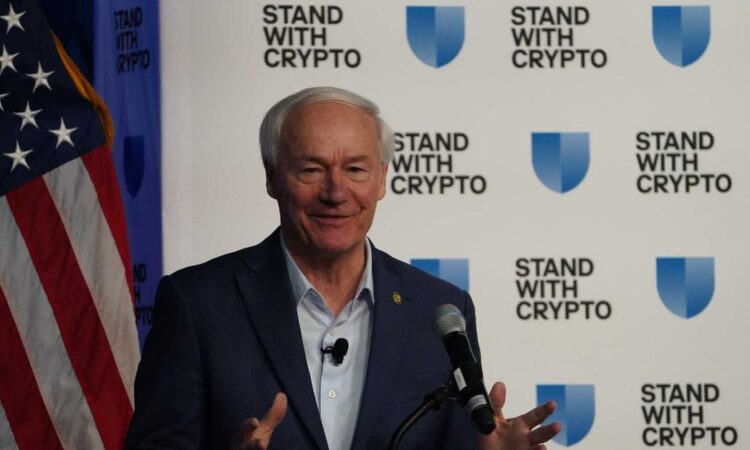U.S. Presidential Candidates Including Vivek Ramaswamy Chat About Crypto, Target Federal Regulators

Three U.S. presidential candidates vowed to reboot the embattled cryptocurrency ecosystem, a sign the industry’s lobbying investments could bear fruit in the coming elections.
The trio, two Republicans – entrepreneur Vivek Ramaswamy and former Arkansas Gov. Asa Hutchinson – and Democrat Rep. Dean Phillips, promised to ease regulatory pressures on crypto companies during the hours-long event hosted by the Coinbase-backed Stand with Crypto Alliance. While their approaches varied in tone and scope, they shared a common theme: Creating a clear, cohesive regulatory framework for digital assets.
“Whether or not something is a commodity or a security, businesses deserve to know rather than playing regulatory musical chairs,” Ramaswamy said after calling regulatory overreach on the crypto sector a “cancer.”
Each candidate delivered a speech on crypto policymaking and fielded questions from CoinDesk Regulations and Policy Editor Jesse Hamilton. Their comments centered on the creation of a unified regulatory framework, from curbing federal regulators’ powers to educating policymakers about crypto and protecting coders from criminal charges. The consonance between those proposals contrasted with the political dissonance that has stymied recent efforts on Capitol Hill to create a regulatory rulebook for the industry.
While the speakers’ comments were often constructive, they also degenerated, at times, into shameless self-promoting spiels. All three blasted the Securities Exchange Commission’s crackdown on crypto exchanges including Coinbase, Kraken and Binance, and called for the agency’s powers to be curtailed.
“We want to see an SEC that… doesn’t treat everybody they’re regulating as an adversary,” Hutchinson said as he called for an end to regulators’ “guidance-by-enforcement” strategies.
Ramaswamy vowed to reduce the agency’s workforce as part of his goal to eliminate 75% of bureaucratic jobs, noting that the third U.S. president, Thomas Jefferson, who died nearly 200 years ago, would be “turning in his grave” over the agency’s actions toward crypto, a technology that was invented roughly 15 years ago.
None of the participants are leading in their parties’ primary election polls, meaning they probably won’t have the powers of the presidency at their disposal to promote crypto.
Later, the hopefuls discussed how blockchain technology could disrupt traditional finance (TradFi), laying the groundwork for a fairer, trustless financial system.
“There’s more transparency actually in the crypto market than there is in banks and traditional finance,” Hutchinson said.
Crypto “eliminates so many hands in the pot that take little bits of peoples’ money … at a time when life is already so unaffordable,” said Phillips.
While the speakers appeared to be aware of the crypto industry’s unique and numerous challenges, they sometimes lapsed into parroting tired industry lines (“crypto needs clarity”) while skirting opportunities to engage on some of the finer points of the crypto regulatory debate.






